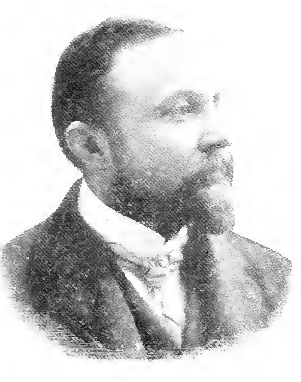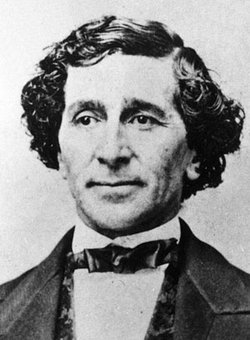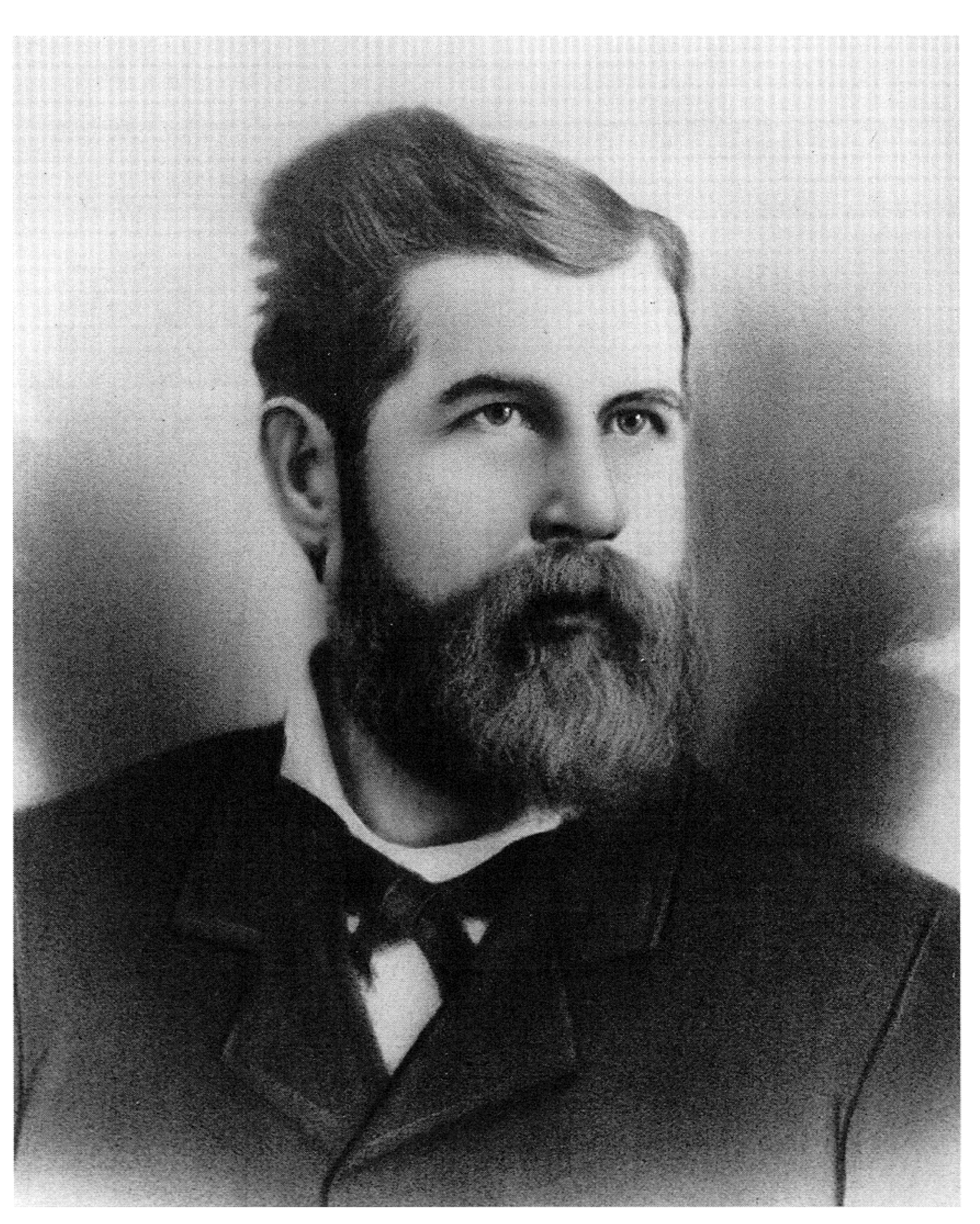Category: Features
-

Literary Lorenzo Snow #5: Pre-Existence
Lorenzo Snow’s teachings on man’s destiny and on the nature of God have often been met with both criticism from non-Mormons and wonder from members. His couplet about the past of God and the future of man (mentioned in the lesson), encapsulates an important part of Mormon theology, something that has been even encapsulated in…
-
Literary DCGD #10: Friendship
Lesson 10 of the Gospel Doctrine manual for the Doctrine and Covenants is one of those lessons that is a bit hard to characterize. It covers D&C 25, addressing subjects like “husbands and wives should support and comfort each other,” “meekness and pride,” and “rejoice and be of good cheer.” I found it hard to…
-
Literary DCGD #9: The God that others worship by John Hardy
The formal organization of the Church on April 6, 1830, subject of Gospel Doctrine lesson #9 this year, was the culmination of many preparatory steps that Joseph Smith and his fellow believers took. When the organization occurred, the group had new scripture, new authority from God and a new prophet at its head. In the…
-
Literary DCGD #8: Hymn by John Hardy
The restoration of the priesthood, outlined in the D&C Gospel Doctrine lesson #8, is central to the Church’s claim to authority and to our understanding of the course of the plan of salvation. Following the atonement of Christ, the authority to administer the ordinances required for eternal life must be a very important element of…
-
Literary Lorenzo Snow #4: Then give us, O Father
When Lorenzo Snow speaks of the Holy Ghost in the material included in chapter 4 of the lesson book, it is clear that he sees the spirit as a great help to us. “It would be simply foolish indeed to expect the Latter-day Saints in these days to comply with the celestial law… except they…
-
Literary DCGD #7: I would see Jesus
When discussing the first principles and ordinances of the gospel the focus is often on the details and less often on their purpose in the plan of salvation. The 7th D&C gospel doctrine lesson talks about faith, repentance, baptism and the gift of the holy ghost. In teaching these principles and ordinances, the focus should…
-
Literary Lorenzo Snow #3: To the Latter-day Saints
The concept of enduring to the end can be somewhat vague. Much of what it requires depends on environment and circumstance — what is required for you to endure to the end is perhaps different than what will be required of me. But the underlying gospel principles are known, and the following poem by Eliza…
-
Literary DCGD #6: May I Remember Thee
The principle of personal revelation is a foundation of Mormonism, a key to our understanding of the gospel. And few places in the scriptures make this as clear as in D&C 8 and 9, which are discussed in Gospel Doctrine lesson 6. There we learn, among other things, that faith is a key aspect of…
-
Guest Post: Mental Health, Mortal Life, and Accountability Part 5: The “Greater Sin”/ Sane Repentance & Forgiveness
[This is the fourth in a series of guest posts on Mental Health, Mortal Life, and Accountability. The first three installments are available here: Part 1:”Exceeding Sorrowful, Even Unto Death” (Mark 14:34), Part 2: Causes and (Mis)Attributions, Part 3: Fractured Images of God, Self, and Others, and Part 4: Accommodations in LDS Activities and Meetings] Now knowing…
-

How a concussion made me think of Stephenie Meyer and Francis Hutcheson
Last semester, my first semester studying Greek, I sustained a mild concussion. I have mostly recovered now. I still have problems with bright lights that makes nighttime driving intolerable, but for the most part, I’m functioning normally. But for a few weeks there, I couldn’t think straight. It hurt to concentrate. Reading even a light…
-
Guest Post: Mental Health, Mortal Life, and Accountability Part 4: Accommodations in LDS Activities and Meetings
[This is the fourth in a series of guest posts on Mental Health, Mortal Life, and Accountability. The other installments are available here: Part 1:”Exceeding Sorrowful, Even Unto Death” (Mark 14:34), Part 2: Causes and (Mis)Attributions, Part 3: Fractured Images of God, Self, and Others, and Part 5: The “Greater Sin”/ Sane Repentance & Forgiveness] During graduate school (in a different…
-
Literary DCGD #5: A Scene in Virginia
The spirit of revelation described in D&C Gospel Doctrine lesson #5 isn’t always credited with all that it deserves. During our lives, I think, we often receive inspiration that we don’t attribute to anything but our own decisions, while that inspiration makes subtle changes, pushing us towards the better. Other times personal revelation is very…
-
Literary DCGD #4: Interview with David Whitmer
I think that we often think of witnesses as something outside of the event, added to fill a particular need or satisfy the desires of the world. But I wonder if this perception might not be incorrect, if witnesses are not, in fact, an important part of the process of communicating truth. A testimony is,…
-
Literary Lorenzo Snow #2: For Baptism
[I am traveling for the 4th annual Brazilian Mormon Studies Conference — please excuse the delay in posting this.] From the beginning of Mormonism, Baptism has been a central focus of our preaching. Baptism must be done in the correct manner and by the correct authority, and should be followed by the gift of the…
-
Literary DCGD #3: The Young Seer
[I am traveling for the 4th annual Brazilian Mormon Studies Conference — please excuse the delay in posting this.] Of our mythic founding stories, the First Vision is surely the most important. It appears regularly in manuals and conference talks, as well as in the missionary lessons, where it is among the first things that…
-
Guest Post: Mental Health, Mortal Life, and Accountability Part 1:”Exceeding Sorrowful, Even Unto Death” (Mark 14:34)
[This is the first in a series of guest posts on Mental Health, Mortal Life, and Accountability. The subsequent installments are available here: Part 2: Causes and (Mis)Attributions, Part 3: Fractured Images of God, Self, and Others, Part 4: Accommodations in LDS Activities and Meetings, and Part 5: The “Greater Sin”/ Sane Repentance & Forgiveness] Not many years…
-

Times and Seasons 2012 Mormon of the Year: Mitt Romney
After due consideration the staff of Times and Seasons has selected Mitt Romney as the 2012 Mormon of the Year, our annual designation of the Mormon who had the greatest impact or influence on Mormons and Mormonism during the year.
-
Literary DCGD #2: Praise ye the Lord
The second Doctrine and Covenants lesson makes the point that this modern scripture talks and teaches of Christ. That focus was easy to find in many Mormon poems and hymns, but the following poem has the advantage of talking about the Lord for what He has done for the Latter-day Church. Eliza R. Snow probably…
-

Literary Lorenzo Snow #1: Provo Sunday School
I love the first lesson in the Lorenzo Snow manual. It seems like Snow’s love of learning is second to none among latter-day Prophets. And his statements about learning are wonderful: “Though we may now neglect to improve our time, to brighten up our intellectual faculties, we shall be obliged to improve them sometime. We…
-
Vote for Mormon of the Year 2012!
This post opens the voting for Mormon of the Year. Votes will be taken until midnight Eastern Time on Monday, January 7th, at which time the voting will close. The voting mechanism will attempt to restrict votes to one per person. The order of the choices is set at random, and is different each time…
-

Literary DCGD #1: On the Latter-day Dispensation
The initial lesson in the Doctrine and Covenants and Church History course of study points out that the revelations found in the text are meant for our time and cover our dispensation, while the history presented is the history of our people, as opposed to those who lived aeons ago. This course should, therefore, be…
-
The Opposite of Epistemic Humility
[This is Part 4 of a 4-part series. Part 1. Part 2. Part 3.] In my first three pieces I’ve spent an awful lot of time talking about epistemic humility. Now I’m going to talk about what I consider to be the antithesis of epistemic humility: extremism. My definition of the term is non-standard, but I believe it…
-
On Learning from False Models
[This is Part 3 of a 4-part series. Part 1. Part 2. Part 4] In this post I want to present a secular example of epistemic humility. As with the religious example, I hope that this one will also provide some intrinsically interesting ideas. I also plan on reusing these ideas in the next couple of posts.…
-
Why Literary Gospel Doctrine Lesson Posts
For the past year each Monday afternoon my “Literary BMGD” posts have appeared each Monday — perhaps confusing some readers who have wondered exactly what these posts were all about. And those who clicked on them to read what they had may have been surprised to find that they were… poetry. What exactly is BMGD…
-
Faith is a Work in Progress
[This is Part 2 of a 4-part series. Part 1. Part 3. Part 4] I appreciate the kind welcome to T&S and all the good comments and questions. I know I haven’t responded to some of them yet, and I’ll try to rectify that soon, but I wanted to make sure I had this post ready to go.…
-
The Wise Man Doubts Often, And Changes His Mind
[This is Part 1 of a 4-part series. Part 2. Part 3. Part 4] I’m happy to have a chance to do a guest stint here at Times and Seasons, and over the next two weeks I want to use my borrowed soap box to talk about epistemic humility. Epistemic humility is an awareness of…
-
Nominate the 2012 Mormon of the Year
Its that time of year again. The media will soon start reviewing the important news stories of the year, Time will soon select its Person of the Year (Mitt Romney has been nominated); so we should get busy selecting the Mormon of the Year. For those who don’t remember, T&S selected Mitt Romney as the Mormon…
-
Literary BMGD #48: My Friends and I
The final lesson for the Book of Mormon Gospel Doctrine class covers Moroni 7-10, the final Book of Mormon prophet’s closing advice to readers, including teachings about faith, hope and charity, the conditions of salvation, spiritual gifts, the role of the Holy Ghost, and how to judge between good and evil. The motivation for this…
-
Literary BMGD #47: While of these emblems we partake
Including the sacrament prayers in Moroni 4, and indeed all the instructions in Moroni 2 through 6, seem almost like an afterthought to the Book of Mormon—kind of like “Oh, yeah, you’ll need to know this stuff too.” And these instructions only make sense if they are written for us today, for Moroni himself is…
-
Literary BMGD #46: Trials and Happiness
I often wonder how Mormon managed to keep it together. He saw his own civilization decaying around him, perhaps while he was in the midst of abridging the record of the Jaredites, summarizing the details of their decline and destruction, which was so similar to his own. Yet despite this, in the final chapters of…
